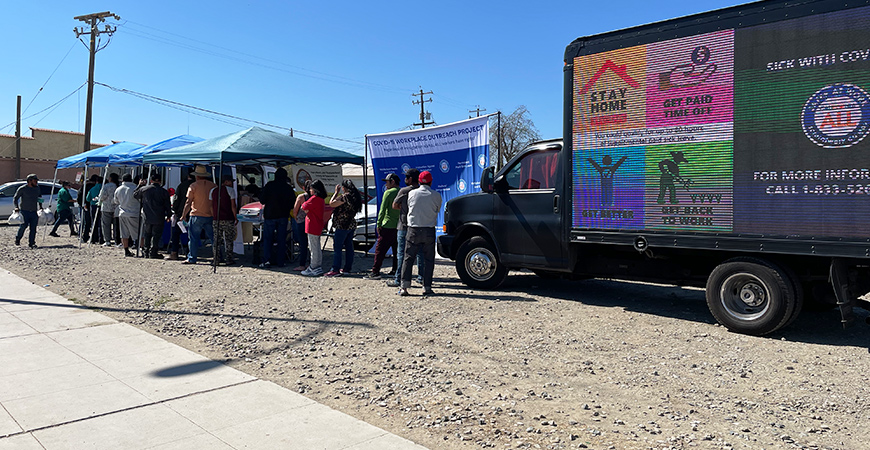
The UC Merced Community and Labor Center (CLC) has received a historic multimillion-dollar award to continue its mission of conducting research and educating the public about low-wage work, immigrant and workers' rights, workplace health and safety, among other issues.
The James Irvine Foundation has awarded the CLC a $6.5 million grant to support the creation of a Worker Resource Center to advance efforts at greater public education of workers' rights in a region marked by some of the nation's greatest worker and environmental inequities. The center will convene a Central Valley Worker Collaborative to enhance and strengthen community and labor advocates' knowledge of workers' rights and their ability to assert those rights.
"Valley workers are on the frontlines of global economic and environmental challenges. This award will support the center in building worker power and addressing the threats posed by a lack of workplace health and safety standards, a lack of a safety net and the increasing risks of climate disaster," said Ana Padilla, executive director of the CLC.
The award is one of the largest grants ever received by UC Merced, an institution created to serve the San Joaquin Valley, to specifically focus on serving the region. The CLC was founded in 2020 and has quickly established itself as the largest labor center serving a rural region in the U.S.
At the onset of the COVID-19 pandemic, the center published a monthly series of applied research and policy reports, briefs and fact sheets that were referenced widely in mainstream media and informed the development and passage of several major state policies. One of the publications included a report that examined the need for a system that, if approved, would provide unemployment benefits to tens of thousands of undocumented immigrant workers in California.
As COVID-19 vaccines became available, the center partnered with several organizations to hold pop-up vaccination clinics and workers' rights informational sessions across the Valley, including in fields and rural towns. The goal of the mobile caravans was to travel to where workers, especially farmworkers, were located instead of having them drive far distances.
More information about the Community and Labor Center and its publications can be accessed online.



